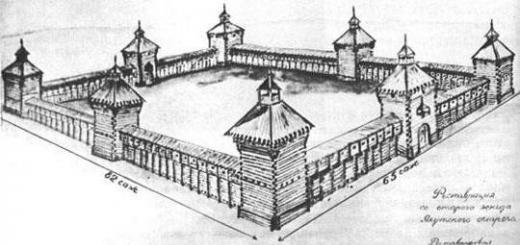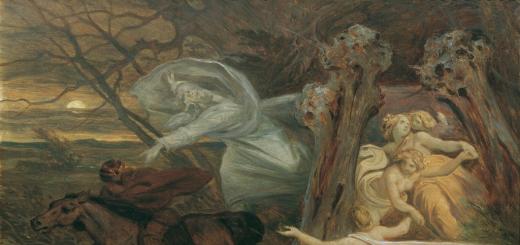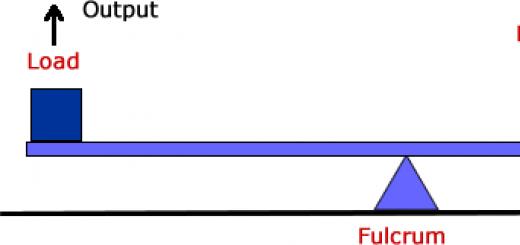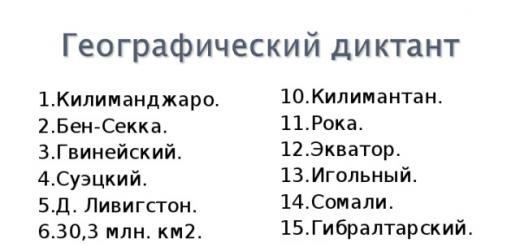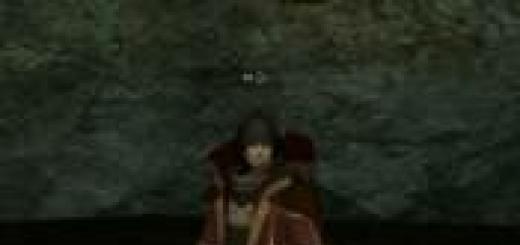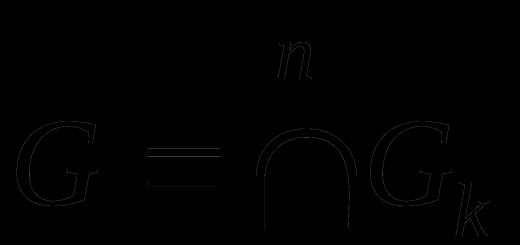The work was written in the form of an appeal to a Russian emigrant who, after the revolution, left her homeland and lives in Paris, where the poet visited in 1928. The poet had a strong but short-lived feeling with the actress Tatyana Yakovleva. The reason for their separation was Yakovleva’s rejection of the new Russia and Mayakovsky’s reluctance to renounce his homeland.
In the poem, unexpectedly, openly and confidentially, two revelations sound: the lyric poet and the citizen poet. They are closely intertwined, and the drama of love is presented through a social drama. In the kiss of lips and hands, the poet sees the red color of the flag of the republics. He tries to throw away empty “sentiments” and tears, from which only, like Viy’s, “the eyelids will swell.” However, this does not deprive the poems of a deeply lyrical coloring. He is frank in describing his vivid feelings for his chosen one, worthy of him and “at the same height,” with whom the Parisian ladies in decorated silks cannot be compared. The poem is permeated with a feeling of pain (which the poet calls jealousy) for Soviet Russia in its difficult period, when typhus is raging, “often licks with a sigh” and a hundred million people feel bad. However, the author of the poetic lines accepts and loves his country as it is, since the feeling of love is “an inexhaustible joy.” The ending of the verse sounds optimistic. The poet is ready to do everything so that the aristocrat Tatyana Yakovleva is not afraid of the cold Moscow snows and typhus, but will take it as a personal insult if she chooses to spend the winter in Paris.
The poem is one of the most original in the poet’s creative arsenal.
Analysis of the poem “Letter to Tatyana Yakovleva” by Mayakovsky
The futuristic creations of V. Mayakovsky are difficult to perceive due to their unusual artistic design. They bring true pleasure to readers who manage to decipher their meaning. The poem described in the article is studied in 11th grade. We propose to make your work easier by using a brief analysis of “Letter to Tatyana Yakovleva” according to plan.
History of creation - the work was created in 1928, after I met a Russian woman who emigrated to France. It was first published only in 1956.
The theme of the poem is love for a woman and for the Motherland.
Composition - According to its meaning, the poem can be divided into several parts: an appeal to the addressee of the message and the creation of her image, a story about the Motherland, a promise to win a woman. The work is not divided into stanzas. Some verses are broken into several lines. Visually, the text resembles a ladder of words.
Genre - message.
The meter of the poem is iambic tetrameter, cross rhyme ABAB.
Metaphors - “decorate any female with silks”, “dogs of brutal passion”, “the verse of people is a dense forest”, “the whistle dispute of trains to Barcelona”, “jealousy moves with thunder”, “measles of passion will scab away”.
Epithets - “important evening”, “black sky”, “big, clumsy hands”.
History of creation
The history of the creation of the poem is connected with V. Mayakovsky’s trip to Paris. There he met Tatyana Yakovleva, who emigrated abroad in 1925. The poet liked the woman, and love developed from sympathy. Mayakovsky invited Yakovleva to return to her homeland, but she refused.
The poet had serious intentions; he was going to marry an emigrant. She reacted with restraint to his advances, making it clear that they would be together only if the poet moved to France. Upon returning to Russia, Vladimir Vladimirovich wrote the work under analysis in 1828.
Subject
The poem intertwines two themes - love for a woman and love for the Motherland. The lyrical hero is torn between these feelings, realizing that he will not be happy if he chooses one thing. Already from the first lines, he makes it clear that love for a woman cannot overshadow his feelings of patriotism, therefore he says that even in kisses and hugs the color of his republics should “blaze.”
Gradually, the lyrical hero moves on to discussions about female beauty. He is not attracted to French women, because they are only beautiful on the outside, but underneath the shell there is emptiness. He separates the addressee of his message from the French women, because this woman has Russian roots.
The lyrical hero asks his beloved to move to Russia. He understands that the woman knows very well the underside of the Motherland, therefore she describes Soviet Russia without hiding or embellishing anything. These descriptions are complemented by a portrait of the beloved. The hero knows what she went through: “it’s not for you to walk in the snow and typhus with these feet...”.
In the last lines, the man invites his beloved into his arms, but knows that she will refuse, so he simply promises to win her love.
The poem develops the idea that love inspires people to the most courageous actions. The author also proves that a person cannot choose between patriotism and love for another person.
Composition
According to the meaning, the poem can be divided into several parts: an appeal to the addressee of the message and the creation of her image, a story about the Motherland, a promise to win a woman. The work is not divided into stanzas. The formal organization reflected the features of futuristic literature. Visually, the text resembles a ladder of words.
Genre
The genre of the poem is a message, since it has an addressee. The poetic meter is iambic tetrameter. The author used cross rhyme ABAB. The work contains both male and female rhymes.
Means of expression
To reveal the image of the beloved woman, reproduce the feelings of the lyrical hero and realize the idea, means of expression are used. These are complex associative complexes that are distinguished by their originality. The key role is played by metaphors: “decorate any female with silks”, “dogs of brutal passion”, “the verse of people is a dense forest”, “the whistle dispute of trains to Barcelona”, “jealousy moves thunder”, “measles of passion will scab away”. Epithets for visual pictures, feelings and emotions of expressiveness: “important evening”, “black sky”, “big, clumsy hands”.
Analysis of Mayakovsky’s poem “Letter to Tatyana Yakovleva”
The lyrics of Vladimir Mayakovsky are very unique and particularly original. The fact is that the poet sincerely supported the ideas of socialism and believed that personal happiness cannot be complete and comprehensive without public happiness. These two concepts were so closely intertwined in Mayakovsky’s life that for the sake of love for a woman he would never have betrayed his homeland, but on the contrary he could have done very easily, since he could not imagine his life outside of Russia. Of course, the poet often criticized the shortcomings of Soviet society with his characteristic harshness and straightforwardness, but at the same time he believed that he lived in the best country.
In 1928, Mayakovsky traveled abroad and met in Paris the Russian emigrant Tatyana Yakovleva, who in 1925 came to visit relatives and decided to stay in France forever. The poet fell in love with the beautiful aristocrat and invited her to return to Russia as his legal wife, but was refused. Yakovleva reacted with restraint to Mayakovsky's advances, although she hinted that she was ready to marry the poet if he refused to return to his homeland. Suffering from unrequited feelings and from the realization that one of the few women who understands and feels him so well is not going to part with Paris for his sake, Mayakovsky returned home, after which he sent his chosen one a poetic message “Letter to Tatyana Yakovleva” - sharp, complete sarcasm and, at the same time, hope.
This work begins with the phrases that the fever of love cannot overshadow the feelings of patriotism, since “the red color of my republics must also burn,” developing this theme, Mayakovsky emphasizes that he does not love “Parisian love,” or rather, Parisian women, who skillfully disguise their true essence behind clothes and cosmetics. At the same time, the poet, turning to Tatyana Yakovleva, emphasizes: “You are the only one who is as tall as me, stand next to my eyebrow,” believing that a native Muscovite who has lived in France for several years compares favorably with cutesy and frivolous Parisians.
Trying to persuade his chosen one to return to Russia, Mayakovsky tells her without embellishment about the socialist way of life, which Tatyana Yakovleva is so persistently trying to erase from her memory. After all, the new Russia is hunger, disease, death and poverty, veiled under equality. Leaving Yakovleva in Paris, the poet experiences an acute feeling of jealousy, as he understands that this long-legged beauty has enough fans even without him, she can afford to travel to Barcelona for Chaliapin’s concerts in the company of the same Russian aristocrats. However, trying to formulate his feelings, the poet admits that “it’s not me, but I am jealous for Soviet Russia.” Thus, Mayakovsky is much more gnawed by resentment that the best of the best are leaving their homeland than ordinary male jealousy, which he is ready to bridle and humble.
The poet understands that besides love, he can offer nothing to the girl who amazed him with her beauty, intelligence and sensitivity. And he knows in advance that he will be refused when he turns to Yakovleva with the words: “Come here, to the crossroads of my large and clumsy hands.” Therefore, the ending of this loving and patriotic message is filled with caustic irony and sarcasm. The poet’s tender feelings are transformed into anger when he addresses his chosen one with the rather rude phrase “Stay and winter, and this is an insult to the general account of the underdog.” By this, the poet wants to emphasize that he considers Yakovleva a traitor not only to himself, but also to his homeland. However, this fact does not at all cool the romantic ardor of the poet, who promises: “I will take you sooner – alone or together with Paris.”
It should be noted that Mayakovsky never managed to see Tatyana Yakovleva again. A year and a half after writing this letter in verse, he committed suicide.
You can read the poem “Letter to Tatyana Yakovleva” by Vladimir Vladimirovich Mayakovsky on the website. The work was written in the form of an appeal to a Russian emigrant who, after the revolution, left her homeland and lives in Paris, where the poet visited in 1928. The poet had a strong but short-lived feeling with the actress Tatyana Yakovleva. The reason for their separation was Yakovleva’s rejection of the new Russia and Mayakovsky’s reluctance to renounce his homeland.
In the poem, unexpectedly, openly and confidentially, two revelations sound: the lyric poet and the citizen poet. They are closely intertwined, and the drama of love is presented through a social drama. In the kiss of lips and hands, the poet sees the red color of the flag of the republics. He tries to throw away empty “sentiments” and tears, from which only, like Viy’s, “the eyelids will swell.” However, this does not deprive the poems of a deeply lyrical coloring. He is frank in describing his vivid feelings for his chosen one, worthy of him and “at the same height,” with whom the Parisian ladies in decorated silks cannot be compared. The poem is permeated with a feeling of pain (which the poet calls jealousy) for Soviet Russia in its difficult period, when typhus is raging, “often licks with a sigh” and a hundred million people feel bad. However, the author of the poetic lines accepts and loves his country as it is, since the feeling of love is “an inexhaustible joy.” The ending of the verse sounds optimistic. The poet is ready to do everything so that the aristocrat Tatyana Yakovleva is not afraid of the cold Moscow snows and typhus, but will take it as a personal insult if she chooses to spend the winter in Paris.
The poem is one of the most original in the poet’s creative arsenal. You can read the text of Mayakovsky’s poem “Letter to Tatyana Yakovleva” online during a literature lesson in the classroom. You can download it in its entirety and study at home.
Is it in the kiss of hands,
lips,
in body trembling
those close to me
red
color
my republics
Same
must
blaze.
I do not like
Parisian love:
any female
decorate with silks,
stretching, I doze off,
having said -
tubo –
dogs
brutal passion.
You are the only one for me
height level,
stand next to me
with an eyebrow eyebrow,
give
about this
important evening
tell
humanly.
Five hours,
and from now on
poem
of people
dense forest,
extinct
populated city,
I only hear
whistle dispute
trains to Barcelona.
In the black sky
lightning step,
thunder
swear
in the heavenly drama, -
not a thunderstorm
and this
Just
Jealousy moves mountains.
Stupid words
don't trust raw materials
do not be afraid
this shaking -
I will bridle
I will humble you
feelings
offspring of the nobility.
Passion measles
will come off as a scab,
but joy
inexhaustible,
I'll be there for a long time
I'll just
I speak in poetry.
Jealousy,
wives,
tears…
well them! -
milestones will swell,
fits Viu.
I'm not myself
and I
I'm jealous
for Soviet Russia.
Saw
patches on the shoulders,
their
consumption
licks with a sigh.
What,
we are not to blame -
hundred million
was bad.
We
Now
so gentle towards those -
sports
You won’t straighten out many, -
you and us
are needed in Moscow,
lacks
long-legged.
Not for you,
in the snow
and typhus
walking
with these legs
Here
for caresses
hand them over
at dinners
with oil workers.
Don't think
just squinting
from under straightened arcs.
Come here,
go to the crossroads
my big ones
and clumsy hands.
Do not want?
Stay and winter
and this
insult
We'll reduce it to the general account.
I'm all different
you
someday I'll take it -
one
or together with Paris.
The eternal theme of the lyrics - love - runs through the entire work of Vladimir Mayakovsky, from the early poems to the last unfinished poem “Unfinished”. Treating love as the greatest good, capable of inspiring deeds and work, Mayakovsky wrote: “Love is life, this is the main thing. Poems, deeds, and everything else unfold from it. Love is the heart of everything. If it stops working, everything else dies off, becomes superfluous, unnecessary. But if the heart works, it cannot but manifest itself in everything.” Mayakovsky is characterized by a broad lyrical perception of the world. Personal and social merged in his poetry. And love - the most intimate human experience - in the poet’s poems is always connected with the social feelings of the poet-citizen (poems “I Love”, “About This”, poems: “Letter to Tatyana Yakovleva”, “Letter to Comrade Kostrov from Paris about the essence of love”).
Mayakovsky's life with all its joys and sorrows, pain, despair - all in his poems. The poet's works tell us about his love, when and what it was like. In Mayakovsky's early poems, mention of love occurs twice: in the 1913 cycle of lyric poems “I” and the lyric poem “Love”. They talk about love without connection with the poet’s personal experiences. But already in the poem “Cloud in Pants” the poet talks about his unrequited love for Maria, with whom he fell in love in 1914 in Odessa. He described his feelings this way:
Your son is beautifully sick!
His heart is on fire.
The paths of Maria and Vladimir Mayakovsky diverged. But no more than a year has passed, and his heart is again torn by the pangs of love. Love for Lily Brik brought him a lot of suffering. His feelings are reflected in the poem “Spine Flute,” written in the fall of 1915. A few years later, already in Soviet times, Mayakovsky wrote poems one after another - “I Love” (1922) and “About This” (1923). In severe despair, reflecting on life and death, he speaks of the paramount importance of love for him: “It’s scary not to love, horror - don’t dare” - and regrets that the joys of life did not touch him. But at the beginning of 1929, “A Letter to Comrade Kostrov from Paris on the Essence of Love” appeared in the Young Guard magazine. From this poem it is clear that a new love has appeared in the poet’s life, that “the cold engine of the heart has been put into operation again.” This was Tatyana Yakovleva, whom Mayakovsky met in Paris in the fall of 1928.
This is how her friends, artist V.I., recalled Mayakovsky’s meeting with Tatyana Yakovleva. Shukhaev and his wife V.F. Shukhaeva: “...They were a wonderful couple. Mayakovsky is very beautiful, big. Tanya is also a beauty - tall, slender, to match him. Mayakovsky gave the impression of a quiet lover. She admired and clearly admired him, was proud of his talent.” Tatiana was the daughter of Russian parents. In the twenties, since Tatyana was in poor health, her uncle, artist A.E. Yakovlev, who lived in Paris, took his niece to live with him. When Mayakovsky returned to Moscow, Tatyana missed him very much. She wrote to her mother: “He stirred up in me a longing for Russia... He is so colossal both physically and morally that after him there is literally a desert. This is the first person who left a mark on my soul... His feelings for me are so strong that it is impossible not to reflect them at least to a small extent.” The poems “Letter to Comrade Kostrov...” and “Letter to Tatyana Yakovleva” dedicated to Tatyana Yakovleva are imbued with a happy feeling of great, true love.
The poem “Letter to Tatyana Yakovleva” was written in November 1928. Mayakovsky's love was never just a personal experience. She inspired him to fight and create, and was embodied in poetic masterpieces imbued with the pathos of the revolution. Here it is said like this:
Is it in the kiss of hands,
In body trembling
Those close to me
of my republics
Flame.
Pride and affection sound in the lines addressed to the beloved:
You are the only one for me
Level in height
Stand next to me
With an eyebrow eyebrow,
About this
Important evening
Tell
In a human way.
Mayakovsky writes with slight irony about jealousy as a manifestation of deep love:
Jealousy,
He himself promises not to offend his beloved with jealousy:
...I will bridle
Scions of the nobility.
Mayakovsky cannot imagine his love being away from his homeland, so he persistently calls Tatyana Yakovleva to Moscow:
We are now
To such gentle -
You won’t straighten many, -
They are needed in Moscow,
Lacks
Long-legged.
The end of the poem sounds like a call to respond to his love:
Don't think
Just squinting
From under straightened arcs.
Come here,
Go to the crossroads
my big ones
And clumsy hands.
The poet had to endure a lot of grievances. He would not like Tatyana Yakovleva’s refusal to come to him in Moscow to be “skewered into a common account.” The confidence that love will win in the end is expressed in the words:
I don't care
Someday I'll take it -
Or together with Paris.
Mayakovsky was very worried about the separation, sent her letters and telegrams every day, and was looking forward to the trip to Paris. But they were no longer destined to meet: Mayakovsky was denied permission to travel to Paris in January 1930. Three months later Mayakovsky passed away. The fate of Tatyana Yakovleva was unsuccessful. Having married Viscount du Plessis, she gave birth to a girl and soon separated from him. Recalling this, the Shukhaevs wrote: “We got the impression that Tanya did not love du Plessis, but she had true love with Mayakovsky, and it seemed to us that they were made for each other. When we learned about the tragic death of Vladimir Vladimirovich, we thought with regret and bitterness that if they had been together, this would not have happened.”
Shortly before his death, Mayakovsky wrote the poem “Unfinished,” which contains the following lines:
Already the second
You must have gone to bed
Maybe,
And you have this
I'm in no hurry,
And lightning telegrams
I don't need to
Wake up and disturb...
Mayakovsky was such a poet: a tribune, an innovator and a subtle lyricist, to whom all shades of human feelings were accessible.
Dedicated to the anniversary of V.V. Mayakovsky - a tribune, an innovator and a subtle lyricist, to whom all shades of human feelings were accessible.Little-known lovers of V. Mayakovsky.
This is interesting:
In Paris, Vladimir Vladimirovich met Tatyana Yakovleva, fell in love with her and offered to become his wife. A recognized beauty, Yakovleva “Russian beauty of Parisian style” (V. Shklovsky) worked as a fashion model in the Coco Chanel Fashion House, Fyodor Chaliapin was infatuated with her and not only.
Shortly before his death, Mayakovsky wrote the poem “Unfinished,” which contains the following lines:
Already the second
you must have gone to bed
Maybe,
and you have this
I'm in no hurry,
And lightning telegrams
I don't need to
wake up and disturb...
(See more about Tatyana Yakovleva in the community coco-chanel-ru link:
http://coco-chanel-ru.livejournal.com/16040.html)

The poet admitted to one of his lovers, Natalya Bryukhanenko, that he loved only Lilya: “I can only treat everyone else well or very well, but I can love in second place.”
Having become the heiress of the late poet’s archive, Lilya Yuryevna destroyed all of Mayakovsky’s correspondence with other women. And the name of Veronica Polonskaya, named by the poet in a posthumous note as a member of her family, was also somehow lost in history.

